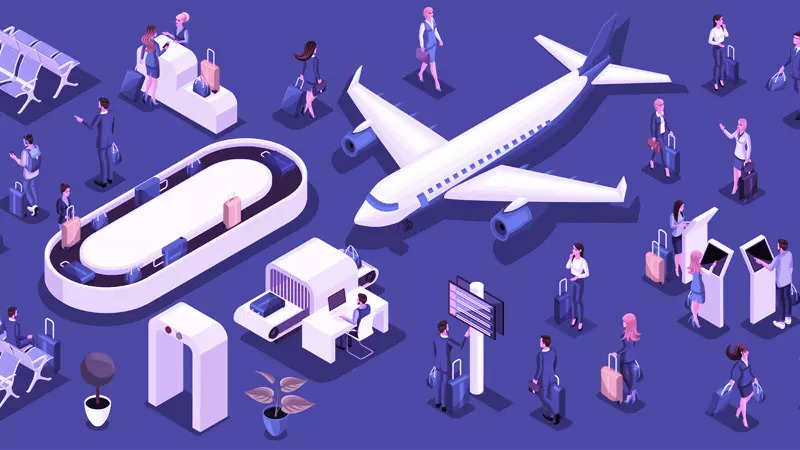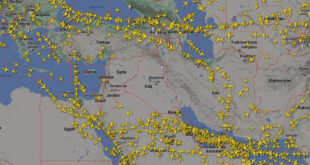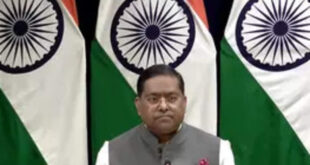[ad_1]

The average Indian customer presents an interesting paradox — a recent study by PricewaterhouseCoopers (PwC) found that 74% of them are worried about personal finances and want to cut back on non-essential spending. At the same time, nearly half of them (45%) want to spend more on travel. Amidst inflation and a gloomy economic climate, Indians are placing more importance on travel, second to buying groceries.
But their expectations of travel experiences have also changed. Customers today want a lot more than a hotel room, travel guide and the beautiful places they get to see. They want rich experiences — both physical and digital.
According to another PwC study, 73% of travellers say that customer experience is the most important factor in their spending decisions and they are willing to pay 16% more if the experience is “great”. With people travelling again, companies can grow their business and their bottom lines by delivering top-notch customer service. But they must rise to the challenge of meeting higher expectations by transforming the systems and processes that are holding them back.
Catering to customer service is a real challenge for Indian travel businesses that are running low on staff and resources. Since 2020, the travel industry in India has laid off 21.5 million people to cope with the effects of the pandemic. However, according to WTTC, India is expected to add 1.6 million in the travel sector by the end of 2023 with demand for jobs in the hospitality sector rising to 60%. As the industry recovers, the layoffs since 2020 have created a shortage of people, leading many businesses to turn to technology. While many travel businesses believe that they deliver strong CX, research from McKinsey shows that there’s a lot of room for improvement. With the goodwill and loyalty of customers on the line, it’s important for businesses to invest in technologies that can help them deliver immersive and exceptional customer experiences.
The power of AI in creating memorable experiences
For all travel and hospitality brands, the well-being of both guests and employees is at the heart of success. Travel businesses are flooded with customer queries. From inquiries about hotel bookings to plane tickets and more, the expectation to keep up with the demand is very high.
Customers want to know that the brands they do business with will make their journey as smooth and personalised as possible, putting businesses under pressure to help users quickly find trip itineraries, hotel recommendations, air, rail, or cruise tickets and more, all while adding a personal touch to the interactions.
Businesses in the travel and hospitality sector can benefit from CX technologies that leverage AI to deliver personalised and agile experiences from start to finish no matter which platform customers reach out on. And when these solutions are built on CX-specific data sets, it can help businesses achieve important business goals.
Help your employees help customers better
For travel businesses, customer support staff are the frontline, tackling customers who are often frustrated or distressed. And they often have to navigate difficult and challenging conversations while factoring in the customer’s sentiment.
For example: a customer whose payment gets deducted twice while booking a hotel stay, reaches out to your business only to have the support agent route them to multiple people before the issue is resolved. This customer may write an agitated post on social media, discussing their negative experience for other potential customers to see.
This experience can be made frictionless when the business has AI-powered CX solutions that can detect customer intent and sentiment – in this case, an unhappy customer wanting his money back – and route it to the right support staff with an accurate summary of events and customer information. Agents don’t have to waste time manually digging up the customer’s purchase history or loyalty status. Add generative AI into the mix, and the CX platform can suggest a perfect reply for the agent to review and hit ‘send’, helping agents tackle the issue quickly and efficiently.
Intelligent chatbots
Now, imagine if the same customer reached out through a chatbot or messaging channel. We’ve all experienced clunky chatbots on websites that often don’t offer much help, or lead us on a loop without an option to handover to a live agent, leaving us frustrated.
By combining the powers of generative AI with these chatbots or messaging channels, travel brands can ensure that they are highly conversational and have the right information and context to answer questions accurately – especially when built on large repositories of CX-specific data.
When these chatbots can understand customer sentiment and intent, businesses can provide round-the-clock support that’s actually helpful. With chatbots dealing with a large chunk of straightforward customer requests, agents are free to handle more complex queries and meaningful tasks like cross-selling or upselling.
Conversational commerce at scale
With social media playing a pivotal role in travel decisions, businesses must leverage this opportunity to deliver conversational commerce to engage potential travellers at the right time and drive personalised conversations to boost sales. Customers desire conversational experiences in their digital interactions with brands. In fact, 84% of them are more likely to buy from companies that offer seamless conversational experiences.
However, manually identifying new revenue opportunities by understanding a traveller’s history and preference is a challenging task. With AI-powered CX solutions, intelligence lives at your agents’ fingertips making it easier to identify new revenue opportunities.
For instance, a traveller wanting a beach vacation reaches out to your brand stating that they are looking for a place close to the beach, within a certain budget and easy connectivity to certain areas. Intelligent CX solutions have the capability to curate recommendations based on these preferences.
While this may seem commonplace, businesses can take it a step further and upsell. If the customer has a history of adventure sports, agents can walk the customer through various activities in the area and provide a competitive pricing list so the customer can decide which booking is right for them.
Agents can also help identify when the customer can purchase flight tickets or identify other tourist attractions close by that the customer can explore within their budget and make the most of their trip. When all of this including the payments happen within a single chat, the entire journey is hassle-free and seamless, making it memorable.
Travel companies must expand their view of CX to connect the physical experience with the digital one. At a time when almost all travel experiences begin online, it’s a massive opportunity for brands to build an emotional connection that exceeds customer expectations.
They can start by prioritising CX and investing in AI. By building these emotional connections with the right CX technologies, it can help them stand out amidst competition and bring back the magic of travel that customers crave.
The author is RVP India & SAARC, Zendesk
DISCLAIMER: The views expressed are solely of the author and ETTravelWorld.com does not necessarily subscribe to it. ETTravelWorld.com shall not be responsible for any damage caused to any person/organisation directly or indirectly.
Source link








